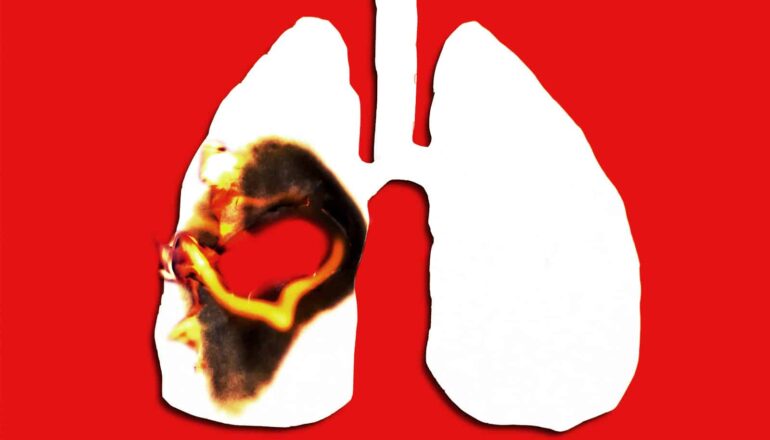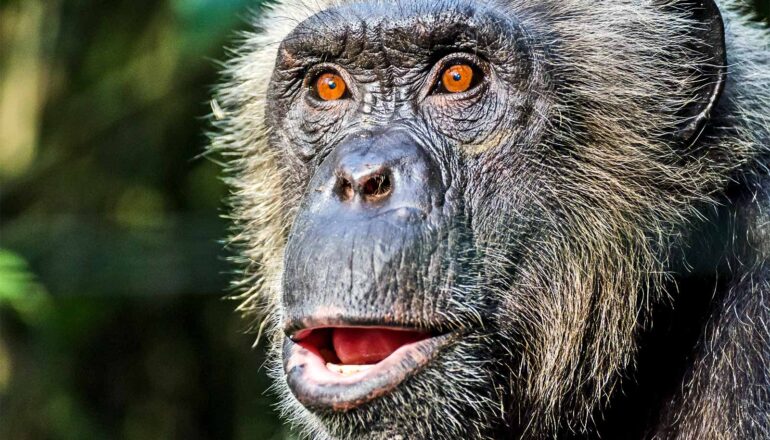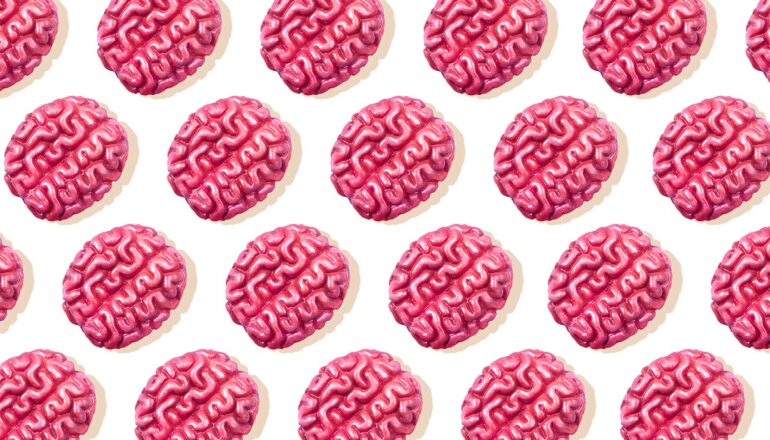October 29, 2025 from Futurity
 A new study shows how targeted, data-driven approaches could help accelerate the transition away from coal power plants.
A new study shows how targeted, data-driven approaches could help accelerate the transition away from coal power plants.October 29, 2025 from Futurity

October 29, 2025 from Futurity
 "Even limited alcohol consumption during sensitive developmental windows can have profound and lifelong consequences."
"Even limited alcohol consumption during sensitive developmental windows can have profound and lifelong consequences."October 29, 2025 from Futurity
 A researcher thinks the solution to more targeted lung cancer treatments may lie in tiny packages that cells use to talk to each other.
A researcher thinks the solution to more targeted lung cancer treatments may lie in tiny packages that cells use to talk to each other.October 29, 2025 from Futurity
 Aging chimpanzees may mirror humans in experiencing age-related declines in their ability to perform cognitively challenging tasks.
Aging chimpanzees may mirror humans in experiencing age-related declines in their ability to perform cognitively challenging tasks.October 29, 2025 from Futurity
 A new book challenges the scientific consensus while introducing readers to new and fascinating dimensions of whale behavior.
A new book challenges the scientific consensus while introducing readers to new and fascinating dimensions of whale behavior.October 27, 2025 from Futurity
 "If you're talking to a chatbot about mental health, these are some things that people should be looking out for,"
"If you're talking to a chatbot about mental health, these are some things that people should be looking out for,"October 27, 2025 from Futurity
 An anthropology professor shares how the family-friendly holiday of Halloween evolved from its spooky roots.
An anthropology professor shares how the family-friendly holiday of Halloween evolved from its spooky roots.October 27, 2025 from Futurity
 New research finds that protein clumps associated with Parkinson’s disease are not just waste; they can drain energy from brain cells.
New research finds that protein clumps associated with Parkinson’s disease are not just waste; they can drain energy from brain cells.October 27, 2025 from Futurity
 New research suggests a possible reason why matter persisted after the creation of the universe.
New research suggests a possible reason why matter persisted after the creation of the universe.October 27, 2025 from Futurity
 New research finds common a vaping ingredient forms harmful chemicals even at low levels.
New research finds common a vaping ingredient forms harmful chemicals even at low levels.October 27, 2025 from Futurity
 "The problem of e-waste raises the question of why and how these technologies become obsolete."
"The problem of e-waste raises the question of why and how these technologies become obsolete."October 27, 2025 from Futurity
 A new study in pet dogs uncovers potential new biomarkers of aging that may one day help them—and humans—live longer, healthier lives.
A new study in pet dogs uncovers potential new biomarkers of aging that may one day help them—and humans—live longer, healthier lives.October 27, 2025 from Futurity
 New research offers insight into how emotional responses to threats contribute to shifts in political attitudes.
New research offers insight into how emotional responses to threats contribute to shifts in political attitudes.October 27, 2025 from Futurity
 "Some of this material is horrifying and it's time to rethink much of the content that's included in these textbooks."
"Some of this material is horrifying and it's time to rethink much of the content that's included in these textbooks."October 27, 2025 from Futurity
 A new discovery could help improve diagnosis and treatment of unexplained movement disorders.
A new discovery could help improve diagnosis and treatment of unexplained movement disorders.